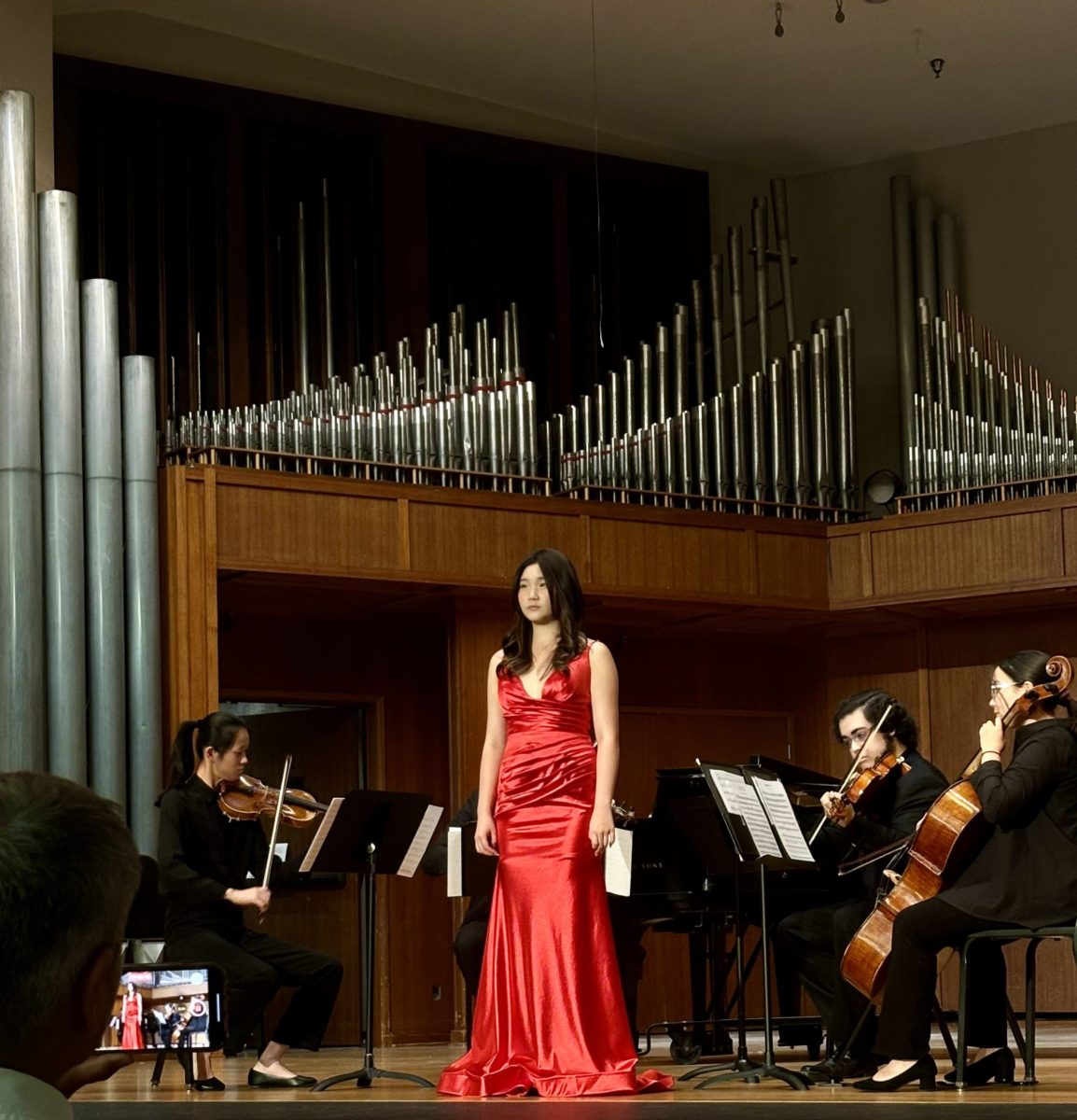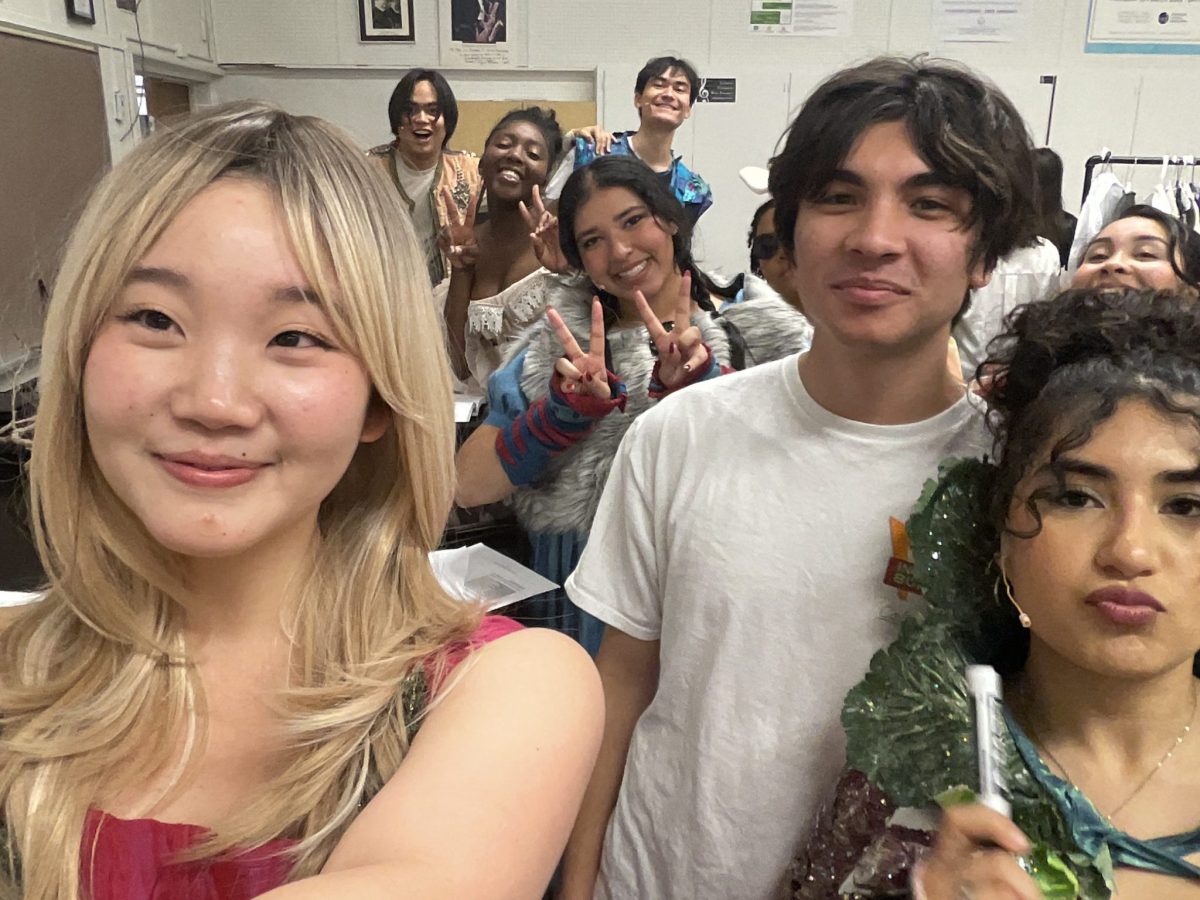I had the opportunity to meet with graduating senior Bridget Lee to discuss her Honors thesis. Lee is a music vocal emphasis student on a pre-physician’s assistant track. We had the chance to sit down and talk about her project “The Comparative Analysis of Settings based on Goethe’s ‘Kennst du das Land.’”
As a classical singer, Lee explained that many classical songs were art songs that used forms of poetry written by famous poets. Initially, she was more interested in works from operas than art songs; however, her project analyzing art songs opened up her perspective on the variety of music out there. Lee’s project focuses on German lieds, specifically the poem “Kennst du das Land” from German writer Johann Wolfgang von Goethe’s novel “Wilhelm Meister’s Lehrjahre.” In this novel, Mignon, a character in the novel expresses longing to return to her homeland with her new father figure Wilhel. Lee, therefore, analyzed five composers from different musical settings and their interpretations of “Kennst du das Land;” she performed three of these works at her senior recital and project presentation.
In her junior year, Lee found that her faculty sponsor and background in interpretive work aided her proposal process. Director of vocal studies and Lee’s primary sponsor, Dr. Raejin Lee, also interpreted German lieds for her dissertation. Therefore, she was able to give Bridget Lee advice on her analysis. Moreover, Lee’s journey as a musician functioned as preliminary research. Many of the works she has sung were based on the composers she studied in her project, namely Franz Schubert, Robert Schumann and Hugo Wolf. The process of singing their music familiarized her with their stylistic choices prior to her project, especially as Lee believes that a singer’s responsibility is to look at the choices made by the composer regarding the text or what kind of notations are done on the piece. Lee’s choice of faculty sponsor and her background in the field, therefore, helped her in her proposal process.

While she faced few barriers in the proposal process, Lee found challenges within her comparative analysis and performance preparation. “I didn’t know how nitpicky to be when analyzing. I’m the type of person that tends to look way too closely to details so sometimes I would analyze a piece way too deeply so that made it a little difficult to compare it to their works,” she said. In terms of her performance, the pieces she chose are typically sung by graduate or doctorate-level students. As such, Lee found it difficult to learn the different styles of each composer. For example, Schubert’s version of “Kennst du das Land” is simple as the key signature and overall timing of the piece are not particularly difficult. Wolf, on the other hand, is known for chromaticism and experimental techniques. His work is set in a key signature of six flats, contains lots of syncopation and depends greatly on the accompanist, which posed challenges to Lee. In these ways, Lee found that her greatest challenge was in the performance of her project as opposed to the research and analysis.
Lee believes that her project has given her insight into her musicianship and music history as a whole. After spending hours each week practicing her pieces while also analyzing them through research, Lee finds that she has changed significantly as a singer. Moreover, what she has learned about musicianship through these pieces has bled into other works she has sung since. The applicability of her work, therefore, has enriched her overall musicianship. She also finds that comparative analysis of music and studying foreign languages, as she did in her project, give perspective as to what kinds of developments have happened in music history and what has led to modern music.

The highlight of the project for Lee was a deeper appreciation for each composer’s artistry. “Even though they all use the same text, it’s honestly incredible to see how differently they interpreted the text,” she found. For example, where one composer will think that a specific phrase of “Kennst du das Land” is the climax, another composer might make an entirely different part of the poem the climax. “It’s definitely interesting to kind of see not only how these composers compose it differently but also how they interpreted the poem itself differently,” Lee said. As a singer familiar with other works by these composers, she found it deeply interesting to look at what kind of choices translate across all the works of each composer.
Finally, Lee’s main advice for approaching the Honors scholarship project is to choose something of personal interest. “Honestly speaking if I didn’t choose a project that I was really fascinated by or interested in, this process probably would have been much more challenging.” As Honors scholarship projects are considerable dedications of time and energy, Lee believes that a personally interesting project helps motivate the work required for them. “Just choose something that you’re really interested in and something that you want to know more about.”
—Katie Jang, Class of 2025: English Literature

